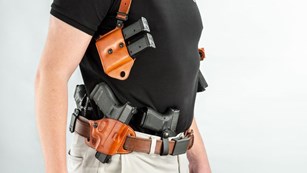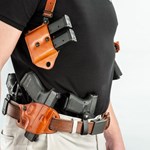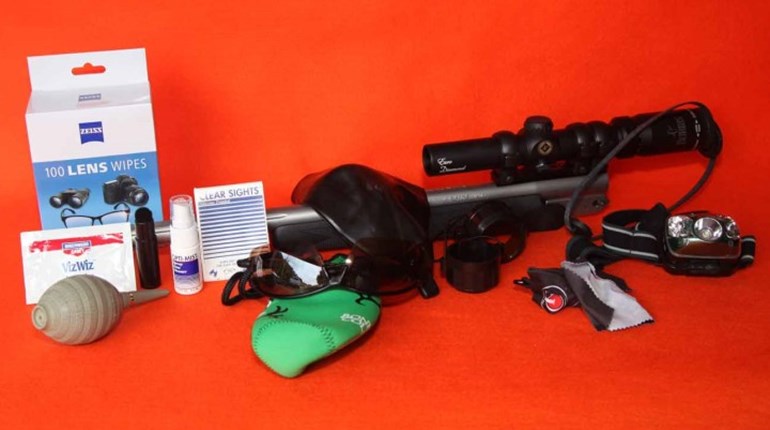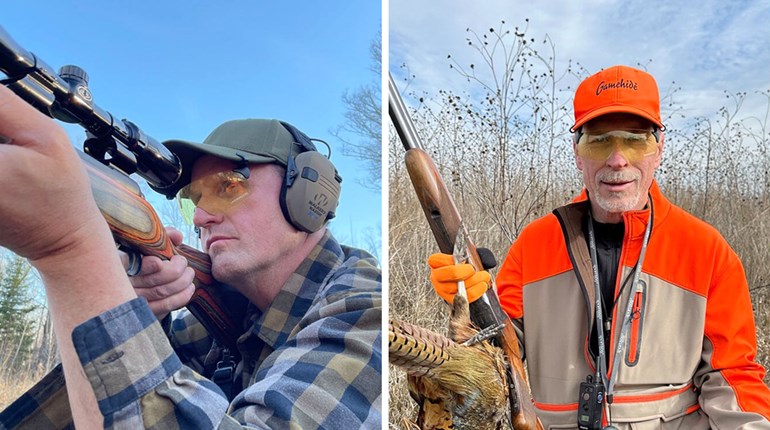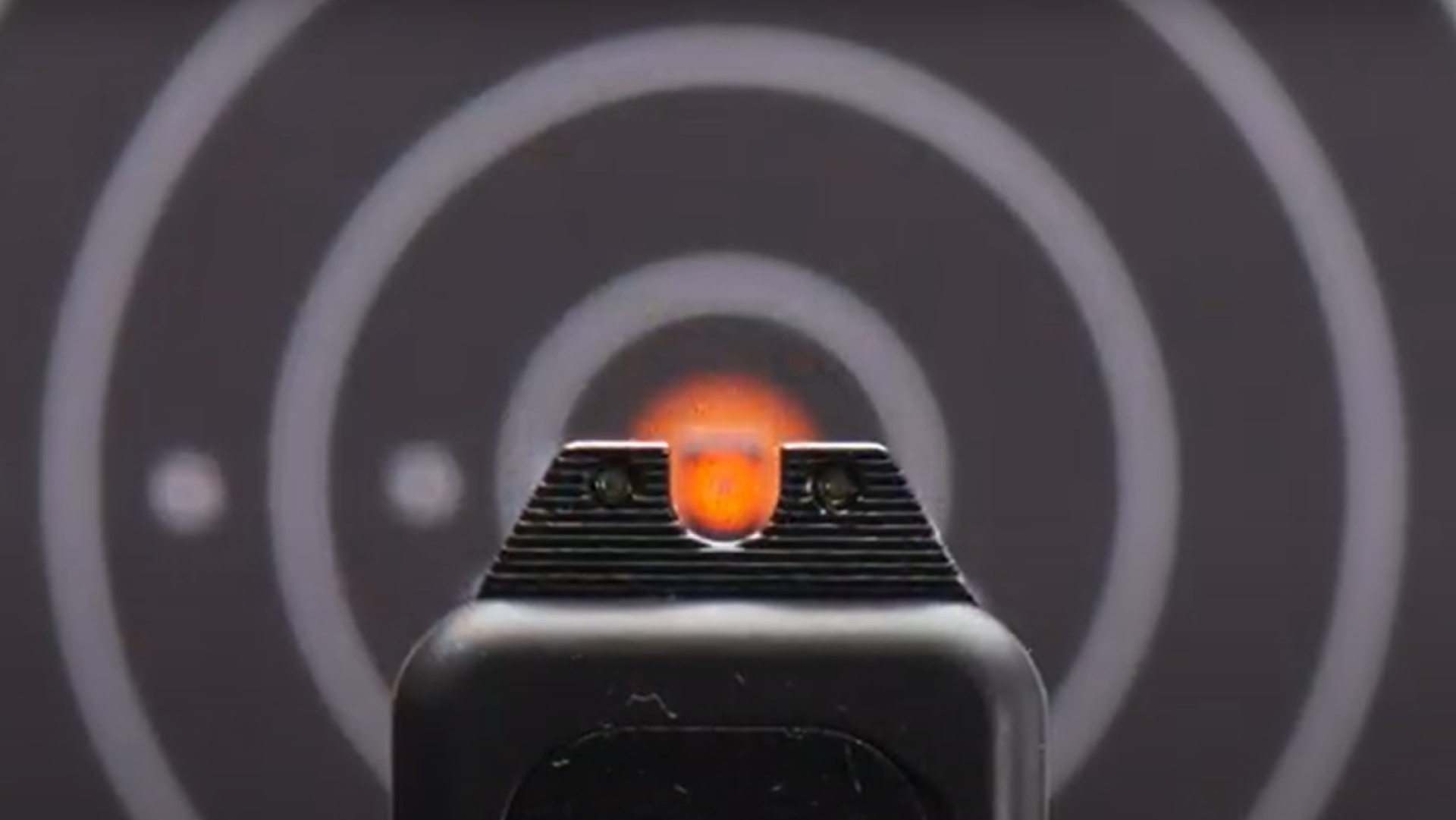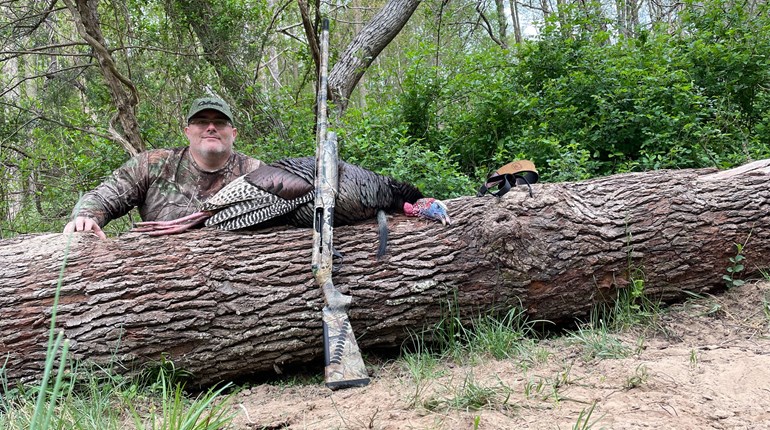
As most hunters realize, eye injuries are common—but many such accidents are preventable. When sighting-in our firearm at the range, we all protect our eyes with shooting glasses, but when hunting, that is a piece of equipment we usually leave at home. Yet as we move through thick brush, frequently when it's still dark out, there is always a twig just waiting to ruin our day.
Preventive Measures:
There are two simple precautionary measures you can do to avoid injury to the eyes: moving slowly and wearing shooting glasses. Also, when following someone through brush, do not follow too close. If they push a branch out of their way and then let it loose, you can get it in the face. Yet, not all shooting glasses are the same and with glasses, you get what you pay for. I also prefer lenses that are non-distorting as well as being impact- and scratch-resistant. They also should be of the quality to block at least 99 percent of UVB and 60 percent of UVA radiation...and are comfortable when worn all day.
UV Protection:
On the positive side, UV rays destroy many harmful organisms. On the negative side, they can penetrate cloud cover and as an immediate effect, cause sunburn. The long term-effect can contribute to skin cancer. These rays can also damage the eyes and for this reason, quality sunglasses should especially be worn as you hunt open areas all day. The first concern here is quality. Just because a glass is dark does not mean that it offers sufficient protection from these potentially harmful rays. When purchasing glasses, do not buy what simply looks best without checking specifically for the amount of protection a particular brand offers. My recommendation is to purchase glasses that offer as close to 100 percent protection from ultraviolet radiation (UVR) as possible.
Even with good glasses, there are special lens colors for well-defined situations in which hunters and target/competition shooters find themselves. Some Companies as NYX Sport, WileyX, Bolle and others have interchangeable lens systems. This is a nice feature, yet there are two drawbacks which are easily remedied. The first is that when shooting sporting clays, the situation can change from one station to the other—bright sun may be a factor on one, while on the next station it is dark due to it being surrounded by trees. Instead of changing lenses, I purchased two extra frames for my NYX set so I have three complete glasses for different situations. Then I have my name and what color of lenses within attached to the case so it is easy to get what I need quickly. The other reason I purchase at least two extra frames for whatever set I have is that a few years ago I broke a frame and when I went to purchase another, the company was gone and now I was stuck with a variety of interchangeable lenses and nothing to put them into. Concerning general lens colors, here is a guide that covers most situations.
Yellow: These are excellent, especially in low or regular light as when hunting or target shooting indoors or outside. They will give you a high contrast and sharp definition that helps one to distinguish objects in the woods.
Vermilion (Red): Preferred by sporting clays, trap and skeet shooters. These seem to brighten targets by increasing the contrast against darker backgrounds (which is why some hunters prefer this color).
Purple: Works well in a variety of lighting conditions and is easy on the eyes. It washes out dark background colors and therefore, accentuating targets and even game.
Clear: This color or lack of it is also good on overcast days or even indoors at the range. If you do not prefer color lenses, then this is the one to use to protect the eyes from injury. Clear is also excellent when using power tools for those home projects.
Dark lens cuts down on glare that can cause snow blindness while allowing you to see in bright light without straining. If you hunt in snow-covered conditions, after a few hours of everything being white, your eyes may start to become sore from glare on the snow. All colors can protect from wind burn, which can result in conjunctivitis, an inflammatory condition of the eyes' conjunctiva. This once happened to me in the high country of Montana when I forgot my glasses as we left camp to ride up higher looking for elk.
Also, shooting glasses offer protection from firearms with recoil arresters. These devices are common to reduce recoil on big-bore firearms because they work. Yet, out of those holes gases and some particles are expelled—which glasses offer protect from. Also be aware that the cylinder gap on revolvers can spit out small particles of lead or un-burnt powder, which can damage the eyes if struck. Black powder shooters also need to be aware that flash and burning powder from a flintlock muzzleloader is a source of small particles in the air after the shot.
First-Aid for Injuries to the Eye:
With any injury, especially to the eye, contact your physician as soon as possible to be evaluated. Eye injuries are not to be taken lightly so also ask your physician or ER personnel what to do until you arrive and are under professional medical care. Concerning first aid, here are some suggestions.
If you get a foreign body in the eye (as from a piece of bark), DO NOT rub it. An example is to take sandpaper and rub it on a smooth board; hear the scratching? This can be correlated to what will happen to the smooth eye surface if rubbed and something rough is on it.
HUNTING TIP:
It is a good idea to carry with you a little mirror since you cannot remove something if you cannot see it. To remove a small piece of dirt that you can see in your eye, touch the piece of dirt with the tip of a wet handkerchief. The dirt should stick and out it comes. If you cannot get it out, cover the eye to prevent movement and seek medical help as soon as possible. To up the stakes, if you ran into a twig and the surface of your eye was scratched, cover it and seek medical care immediately. Only your physician can take care of this medical emergency.
Safe Hunting!







